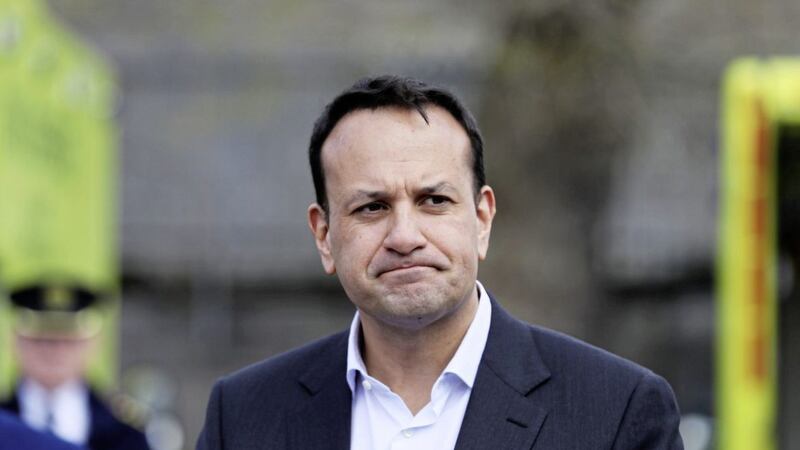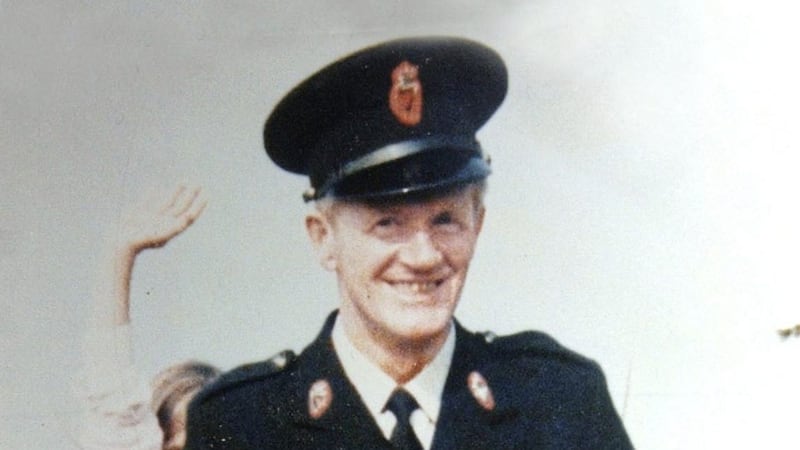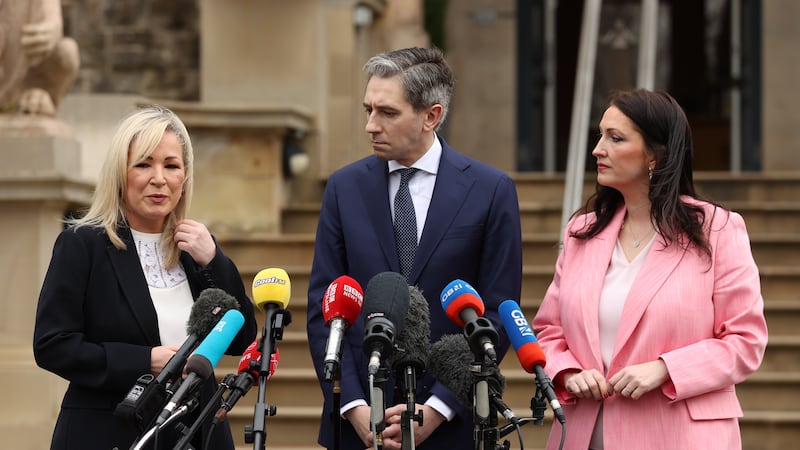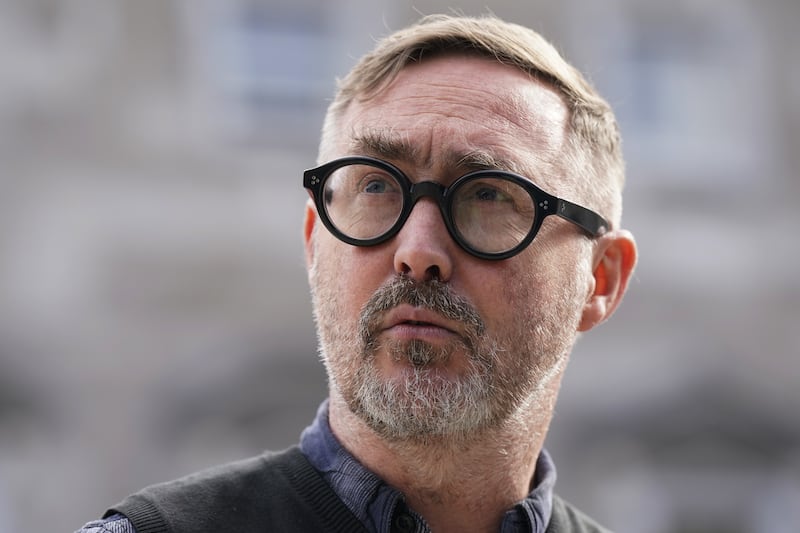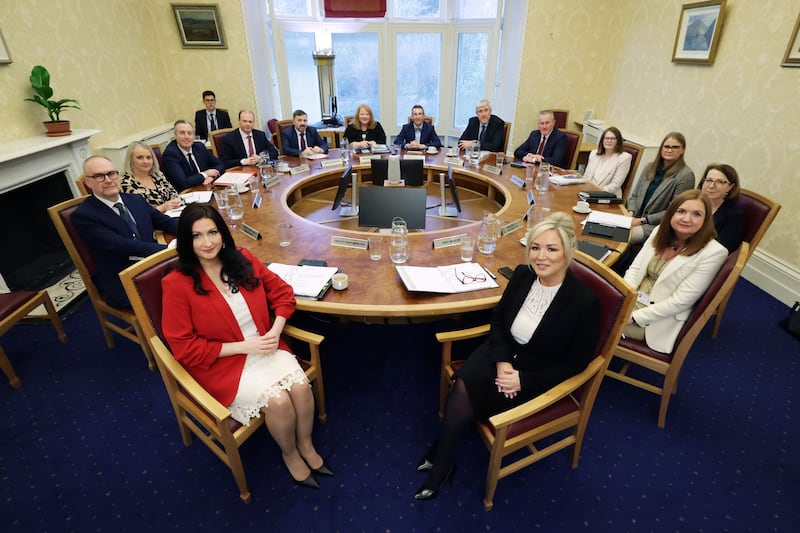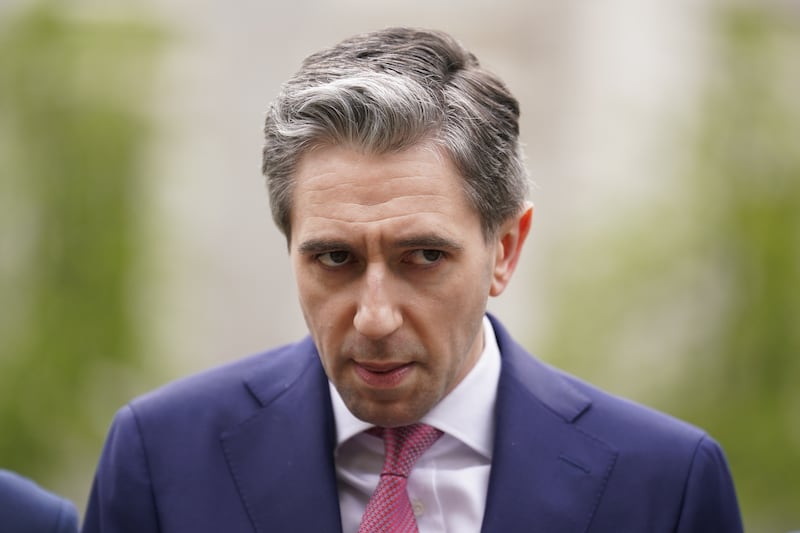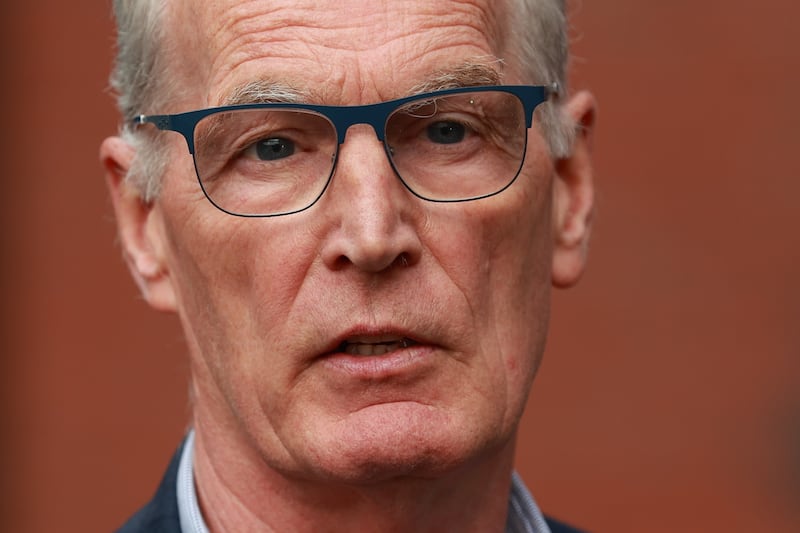Taoiseach Leo Varadkar has said Fine Gael wanted to go into opposition and let Sinn Fein form a government, but the plan did not work out.
While Sinn Fein won the popular vote in February's election, the party failed to establish a left-wing coalition because they did not secure enough numbers to reach the 80 seats required for a Dail majority.
A programme for government is to be voted on by members of Fine Gael, Fianna Fail and the Greens this week. A result will be announced on Friday with a new taoiseach due to be chosen on Saturday.
"Sinn Fein, despite their protestations, never really tried," Mr Varadkar said.
"They didn't even come up with a framework document with the far-left.
"They voted for Mary Lou initially, but they couldn't even agree a common policy among themselves.
"Given the opposition on the left were so incapable of delivering on any of the promises they made, we felt that we should step back in and this was our best attempt and perhaps only attempt to form a government."
The Fine Gael leader and Fianna Fail's Micheal Martin have warned there is "no Plan B" if the programme for government is voted down this week.
"I know there are some people in my party who are counselling me and advising me to have a Plan B on the shelf, but I decided not to do that because we entered these coalition talks in good faith with Fianna Fail and the Greens," Mr Varadkar told Newstalk FM.
"If it is defeated, we will have to sit down over the weekend and see what the options are."
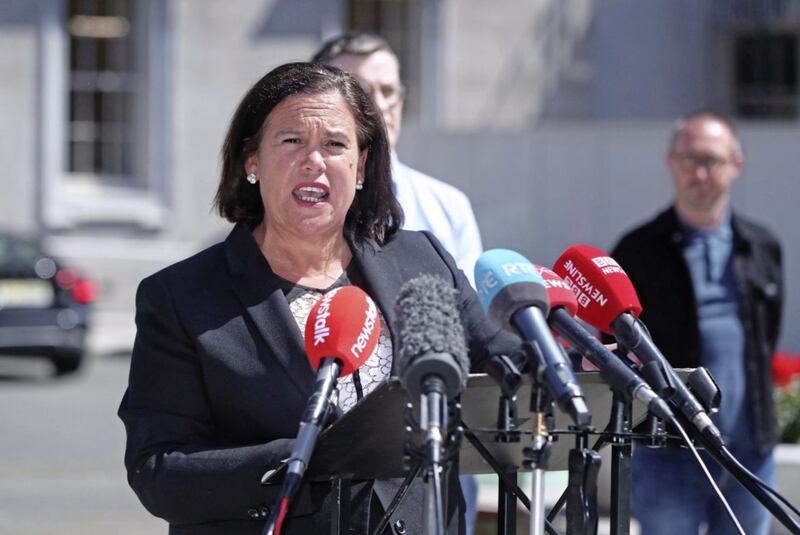
Meanwhile, Sinn Fein president Mary Lou McDonald said that if the agreement fails to garner enough support, Sinn Fein will speak to other parties.
"We will talk to the Social Democrats, we will talk to Green Party, People Before Profit and to independent formations, to establish in the first instance, can we agree on a very strong programme for government and can we agree that we have a sufficiency to form the core or the spine of a government for change going forward," she said.
"If that being the case, then it will be necessary, from a numbers point of view, to talk to the other parties as well, and that's consistent with what I've been saying all along, which is I will talk to everybody."
Ms McDonald told RTE that the country is facing "more of the same" of Fianna Fail and Fine Gael, "this time officially in bed together".
"I have views around the track record of others, and the policy positions of other parties, but nonetheless, once the people have their say and the votes are cast, well then it's incumbent on every party to talk to each other and to establish the best basis for a government going forward," she added.
"The best basis for the new government, on the back of the last election, is a government that is truly new and transformative and a government of change, and what's on the table at this point in time, a combination of Fianna Fail and Fine Gael, the political establishment cemented together, is certainly not change."
Micheal Martin said if the blueprint document is rejected, it will leave parties in "uncharted territory".
Fine Gael, Fianna Fail and the Green Party have been balloting their respective members to back the document, which took some five weeks to put together.
The Green Party has the highest threshold of the three parties to secure the approval of its membership. Two thirds of members registered to vote on the proposals must back the deal.
Mr Martin said the country is facing an "enormous challenge" in dealing with Covid-19.
Asked what will happen if the document is rejected, Mr Martin told RTE Morning Ireland: "I think we are in uncharted territory if that happens.
"An enormous amount of time has been put into the negotiations to get this programme for government.
"Therefore there is no magic Plan B if it's defeated.
"The negotiations is on all sides, and I'm not saying that in any hardline way, believe me this has taken quite a long time and has taken quite a lot of detailed discussion on all sides and involves compromises from all parties.
"I think we will be in a very difficult situation if it emerges that this does not get support from the members of any political party.
"We have had a lot of discussions with independent groupings, some of whom have indicated a desire that there would be a government formed and it would last five years."
Mr Martin said he is "very positive" the programme will be accepted.
